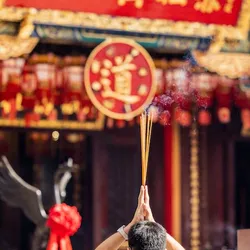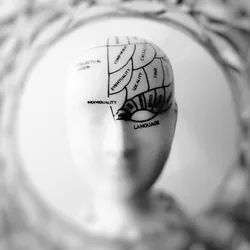
Level 1:
A very important man in China called Li Keqiang has passed away. He used to help run the country. He was good at talking about ways to help people start businesses. But, another powerful man, Xi Jinping, made big decisions in the country. Li was also known as a man with three fires because of accidents that happened when he was the leader of Henan province. He took good care of the country during the COVID-19 time, but later he stopped working as a leader.
Highlighted vocabulary words:
Li Keqiang: A man who used to help run China.
Passed away: An easy way to say someone has died.
Businesses: Places that sell things or offer services.
Accidents: Things that happen that we don’t plan for.
COVID-19: A sickness that spread all over the world.
Leader: The person who is in charge.
Level 2:
A very important man named Li Keqiang from China has died. He was a leader who helped make rules about how things are bought and sold in the country. But, a man named Xi Jinping took over most of the decision making. Li Keqiang was also known for some big accidents that happened in a place called Henan when he was in charge there. When a big pandemic called COVID-19 happened, he helped the country deal with it. But later, he was not a leader anymore.
Highlighted vocabulary words:
Li Keqiang: A Chinese leader who helped run the country.
Decision making: Making choices or conclusions about something.
Pandemic: A disease that spreads to many people across countries or the whole world.
Full Story:
Former Chinese Premier Li Keqiang, who served as the country’s top economic official from 2013 to 2023, passed away from a heart attack at the age of 68. He was an advocate for private business but held little authority as President Xi Jinping consolidated much of the country’s power.
Being fluent in English, Li was initially considered as a possible replacement for then-Communist Party leader Hu Jintao in 2013. However, Xi, with a detour from the Hu era’s consensus leadership style, centralized powers leaving Li and others serving on the Party’s seven-member Standing Committee largely influential.
Li came into office in 2013, as warnings grew louder about the potential for the construction and export booms of the previous decade’s rapid growth to narc. As the head of economic affairs, Li pledged to enhance conditions for entrepreneurs who contribute to the creation of jobs and wealth.
But this could not be fully achieved, as President Xi and his ruling party strengthened the state industry’s dominance and imposed stricter control over tech and other sectors. Foreign companies felt unwelcome as Xi and other leaders called for economic self-reliance, expanded an anti-espionage law, and raided consulting firms’ offices.
Despite being under the informal retirement age of 70 by two years, Li, who managed China’s response to the COVID-19, lost his position on the Standing Committee at a party congress in October 2022. He left office in March 2023, the same day Xi inaugurated his third five-year term irrespective of the tradition his predecessors followed, who served only two terms.
Xi Jinping filled the Party’s core ranks with people loyal to him, thereby ending the era of collective leadership and potentially making him leader for life. The No. 2 position was assigned to Li Qiang, the party secretary for Shanghai who lacked practical experience at the national level.
Looking back to the early part of Li Keqiang’s political journey, it was marked with resilient political skills but with less interest in reforms. As governor and party secretary of populous Henan province in central China, he was nicknamed “Three Fires Li,” hinting at his ill-fated term marked by three deadly fires. He managed to stay intact while other officials faced punishments.
Li Keqiang’s death marks the end of an era for a man once seen as a strong potential leader but found himself sidelined by consolidatory tactics.
The history and politics of China are undoubtedly complex, presenting a nuanced landscape shaped by the interplay of power, leadership, and policy-making. The story of Li Keqiang serves as a reminder of the intricate and often challenging pathways of power that those in leadership must navigate.
Highlighted vocabulary words:
Li Keqiang: A Chinese economist who served as the Premier of the People’s Republic of China from 2013 to 2023.
Advocate: A person who publicly supports or recommends a particular cause or policy.
Centralized: Concentrated under a single authority.
Influential: Having or exerting a significant influence or effect.
Questions:
Question: What were some significant challenges Li Keqiang faced during his time in office?
Answer: Li Keqiang faced many challenges, including the potential slowdown of China’s economic growth that had been primarily driven by construction and exports. As a premier, his authority was also greatly diminished as Xi Jinping established direct control over the economy and society.Question: How did the leadership style of Xi Jinping differ from Li Keqiang’s approach?
Answer: Xi Jinping’s leadership style deviated from the consensus-oriented leadership, preferring to centralize powers, which eventually sidelined other leaders like Li Keqiang. On the other hand, Li Keqiang showed his willingness to support private business for economic growth.Question: In your opinion, what might have been different if Li Keqiang remained in power for longer?
Answer: While it’s hard to know for sure, had Li Keqiang retained power, he might have been able to implement more pro-business policies. This could have potentially balanced the dominance of the state industry and possibly led to more freedoms for tech and other industries.Question: How do you think China’s approach to dealing with COVID-19 might have been influenced by Li Keqiang’s leadership?
Answer: As Li Keqiang was in charge of handling China’s COVID-19 response, his leadership probably shaped many actions taken during the crisis. His policies may have affected everything from public communications, containment strategies to resource allocation in combating the pandemic.
Fill in the Blanks:
- _________ was China’s premier from 2013 to 2023.
- As a premier, he was an __________ for private enterprise, but his power decreased as Xi Jinping took control.
- President Xi Jinping ___________ power and authority, which left other members of the party with little influence.
- Li Keqiang was a leader who made a substantial __________ in politics.
Random order of words to fill in the blanks:
- Advocate
- Influential
- Centralized
- Li Keqiang
Li Keqiang - China’s Former Premier Comprehension Test
Test your understanding of the article about the life and political journey of Li Keqiang, the former Premier of China.
- Who is Li Keqiang and what major political role did he hold?
a. He was the current Premier of China
b. He was the former Premier of China
c. He was the current Secretary-General of the United Nations
d. He was a business tycoon in China
- True or False: Li Keqiang was a vital force behind the boom in China’s construction and export industry.
- What is the term used to the describe Xi Jinping’s amalgamation of powers?
a. Decentralization
b. Capitalization
c. Adjudication
d. Centralization
- Why did foreign companies feel unwelcome during Xi Jinping’s leadership?
a. Xi Jinping increased taxes on foreign companies.
b. Xi Jinping called for economic self-reliance and restricted foreign companies.
c. Xi Jinping monopolized all major industries.
d. All of the above
Short Answer:
- How did Li Keqiang’s leadership impact China’s economic growth and COVID-19 response?
- In your opinion, how did Xi Jinping’s consolidation of power influence China’s economy and society?
Refer to the comprehensive article “Former Chinese Premier Li Keqiang Dies at 68” for detailed insight into Li Keqiang’s life and contributions to China’s economic and societal development.
Keywords for SEO: Li Keqiang, China’s former Premier, Xi Jinping, centralization of power, China’s economic growth, COVID-19 response.




